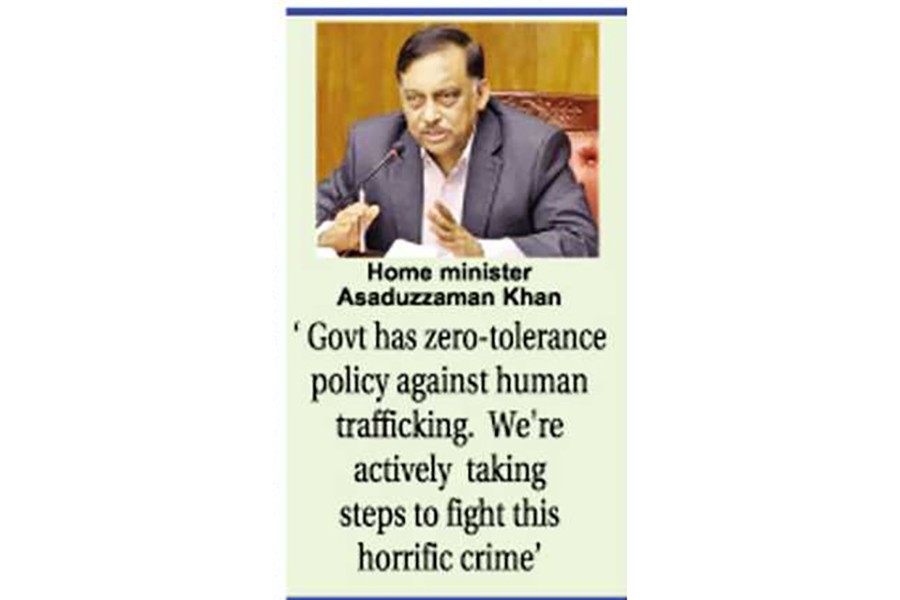Speakers at a consultation call for advancing a robust, rights-based approach aimed at preventing the exploitation of individuals by trafficking networks and shrinking the space in which they operate.
All stakeholders, including the government, international partners, the private sector and civil-society actors, have been urged to focus on this issue.
The scourge of human trafficking has expanded into cyberspace, thanks to the rapid march of technology around the world, they say.
Home ministry and the Counter Trafficking in Persons Technical Working Group of the Bangladesh UN Network on Migration hosted the National Consultation on 'Combating Human Trafficking in the Context of Use of Technology and its Abuse' to mark World Day against Trafficking in Persons on Saturday.
The problem has been accelerated by the Covid-19 pandemic and the transition of daily lives to online platforms, according to the participants.
It is imperative that efforts to combat human trafficking are coordinated both online and offline.
The theme of the day is 'Use and Abuse of Technology' and it focuses on the role of technology as a tool that can both enable and combat human trafficking.
The consultation highlights recent human trafficking trends in the context of Covid-19 and its aftermath, and the trafficking in persons in cyberspace.
Bangladesh is a source, transit and destination country for women, men and child victims of human trafficking.
Although Bangladesh still ranks at 'Tier 2', the US State Department's Trafficking in Persons (TIP) Report-2022 highlights significant progress in responding to TIP in Bangladesh through joint efforts of government and non-government partners.
Home minister Asaduzzaman Khan says, "Trafficking in persons is a serious human rights violation and the government has a zero-tolerance policy on this. We're actively taking steps to fight this horrific crime. The fight against trafficking requires multi-stakeholder engagement."
"We'll continue to work tirelessly to increase awareness around human trafficking utilizing the digital space," he adds.
At the event, foreign minister Dr AK Abdul Momen says, "We need to keep in mind that human trafficking is a trans-boundary crime, and the traffickers may possess better technology than it is available in a particular country."
"We affirm our strong commitment to obligations under a series of other international and regional instruments linked to human trafficking."
Key members of the diplomatic community in Bangladesh attended the event and made remarks.
British high commissioner Robert Dickson, Swiss envoy Nathalie Chuard, Delegation of the European Union charge d'Affaires Jeremy Opritesco and US Embassy acting deputy chief of mission Scott Brandon spoke.


